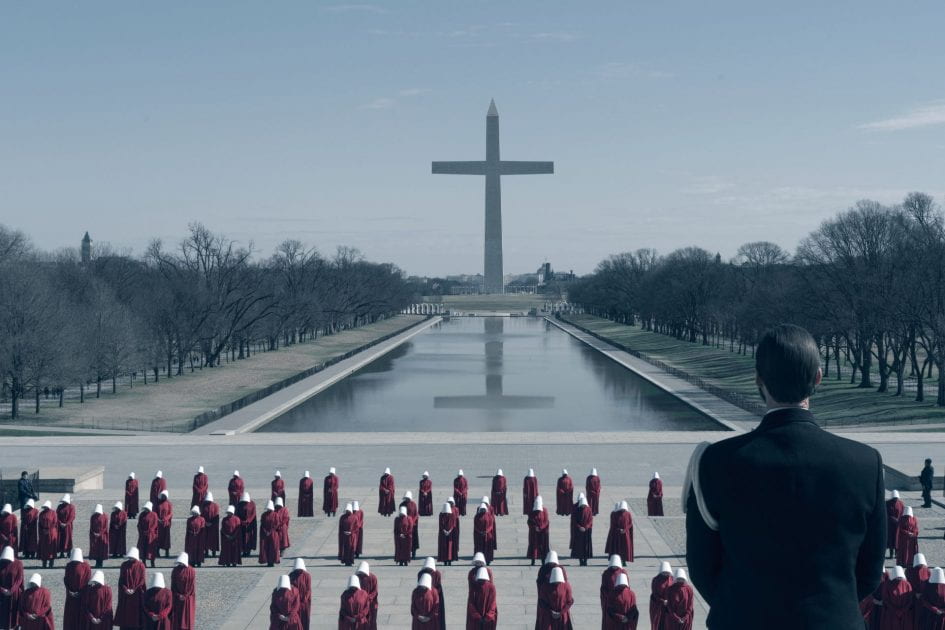Lecture on Surveillance by Dr Madeleine Davis
Power in Gilead lays in the hands of the ‘eyes’ (spies) and leaders of Gilead. The rest of the citizens, including the handmaids, are disempowered. Dr Davis connects this idea of power with sight and vision. The clothes worn by the handmaids are unique and specific to the ideology of Gilead. The handmaids wear a red robe with white wings that restrict their vision. The handmaids are not able to look at their sides and must always look down, as a way to avert someone’s eyesight. Dr Davis claims that “when you don’t have full vision, you don’t have full power.” The idea of vision is expressed at the end of chapter 5 when the handmaids, Offred and Ofglen come across a group of Japanese tourists. Offred thinks, “what they must see is the white whings only, a scrap of face, my chin and part of my mouth. Not the eyes. I know better than to look the interpreter in the face.” The ‘eyes’ and Offred’s vision is emphasized in this section. It is made clear that the handmaids cannot make eye contact with someone. The fact that the handmaids constantly look down while men and others look down upon them shows their power in Gilead. They are in a disempowered state, chiefly because they are forced to look down.
The immense power of the leaders of Gilead is also expressed at the beginning of chapter 6, with a description of their methods of punishment. By the wall of Gilead, takes place ‘salvagings’ of different people – criminals, deserters, etc. The use of the word salvaging connotes the idea of saving Gilead from the sins of others. Offred narrates, “we stop, together as if on signal, and stand and look at the bodies. It doesn’t matter if we look. We’re supposed to look: this is what they are there for, hanging on the wall.” Besides hanging people, which is already a use of power, the regime places the bodies in public so that the ordinary citizen can see. This is a way of showing your citizens the immense power you have and internalizing within them that there is a punishment for their sins. The ‘criminals’ hang powerless, while onlookers also feel disempowered by understanding the regime’s control over them. Gilead wants its citizen to feel fear and understand that they have limited power in their hands. This is expressed on the next page when Offred narrates, “what I feel is that I must not feel.” This is the point that when Offred feels fear for her fate as she looks at the dead people, the regime is successful. As she fears for herself, she is even more disempowered.

November 2, 2021 at 6:48 am
Good notes on the lecture, Aryan. Some illustrative detail drawn from the chapters, but you could have gathered more detail on the different methods used by the regime to sustain power and control in these chapters!